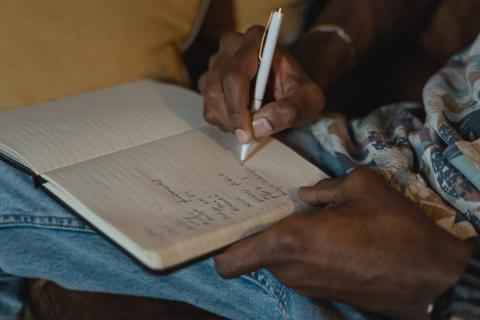Tips on How to Apply for Funding Opportunities
Applying for funding can be overwhelming. Questions like ‘Where do I start?’, ‘What should go in?’, and ‘How long should the bid be?’ are very common and can make you feel unsure about the application process. Read our tips below and create a checklist for yourself to ensure you are ticking all the boxes.
 Photo: by Tima Miroshnichenko via pexels.com
Photo: by Tima Miroshnichenko via pexels.com
-
Read the Guidelines and Eligibility Rules Carefully
This might seem self-explanatory, but most of your questions can be answered by reading the application guides or FAQs of the specific funding scheme before you put pen to paper. Look out for length of application, how the grant can be used, and other basic requirements. Before applying, it is important to make sure that you are eligible for the grant. If you are not meeting the basic requirements, don’t just try it anyway as you will be quickly ruled out if you do not meet them. However, in some cases, you might want to re-think your plans to make them fit the requirements, for example, you might want to change your travel destination depending on where you are based and what is funded. Our Scholarships fund research trips to another country. If your actual plan was to travel inside your country of residence, this requirement might be an opportunity to change plans and find another suitable destination for your research.
-
Allow Time
Applications always take longer than you think or expect. If you rush through applications, mistakes will happen easily and you may miss a requirement or other important details. UACES Scholarships also ask for a supporting letter from your supervisor. You will need to allow time for them to provide you with such. Additionally, time allows you to phrase your idea, plans or project more clearly, increasing your chances of a successful application.
-
Be Clear About Your Plans and Outcomes
Make sure your plans are feasible and try not to promise to do something that might be tricky to follow up in reality. The funding application needs to be realistic rather than unique. Remember that the application will likely be viewed by someone who doesn’t know you, so it is important that you describe what you are planning clearly and concisely.
-
Use Correct Language
Don’t overcomplicate sentences and don’t use jargon. Use simple but clear sentences to make your life easier, especially if English is not your first language. Although UACES won’t reject you if you use incorrect grammar here and there, we cannot talk for other grants and schemes you might want to apply for. That said, using correct grammar also ensures that we understand what you want to say and therefore we advise you to have your application checked by a trusted person. Having someone else read it can also help to find bits in your plan that might not be clear yet and need a little bit more work. So don’t be shy to share your application with a colleague or friend. You can only benefit from that.
-
Keep in Mind What the Grant is About
What is it that you’re applying for? And who is the funder? Put these questions at the centre of your application. For example, at UACES, we don’t fund any projects that are not European Studies related as this is the core of what we do as an organisation. If your research topic is related to European Studies but maybe it is not the core of your research, make sure you name the crossovers and highlight how they contribute to the advancement of the field. You might even want to include evidence of why your work is needed and therefore should be funded to back up your application.
-
Get Advice
Networks, colleagues, supervisors… they can all be a great help when it comes to finding the right grant scheme and how to approach it. Find those who have been in similar situations and can share some experiences, especially with a particular funder. So, be open about what you would like to do, discuss it and think outside of the box as this might open unexpected opportunities to you.
-
Budget
Many funding schemes ask for an estimate of costs. This includes travel costs, accommodation, or an estimate of running an event. Try to be precise but don’t overcomplicate it by adding miscellaneous items that you are not sure about or are not relevant to the type of funding. For example, if it is a travel grant covering your journey and accommodation, don’t add any estimates about daily spendings on food and other things when these outgoings are not covered by the grant.
-
Check, Check, Check!
Approach your application structurally so you don’t forget any documents you might need to include with it. A checklist is always a helpful tool to stay on top of things, ensuring that a single document won’t get forgotten as this might result in being rejected or missing the deadline. Always do the little checks before sending the application out, as once it’s out, you will not be able to amend it.
Here is an example of a checklist for your application:
Is my research relevant to the grant?
Have I included all necessary documents? (the following are typical requirements, but they might differ depending on the funding scheme)
1. CV
2. Motivation letter
3. Statements
4. References
5. Application form
Have I included all required information in my application?
1. Have I outlined the budget?
2. Is there a timeline in my application?
3. Do I mention who is involved?
4. Have I mentioned the destinations?
5. Is my project described clearly?
etc.
Has someone read my application?
What did they suggest?
Have I implemented their feedback?

